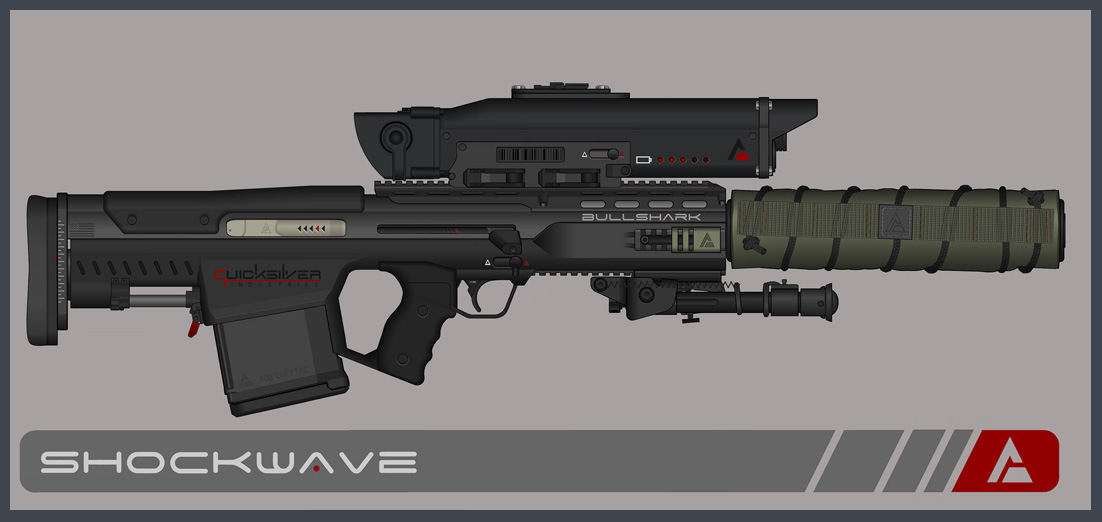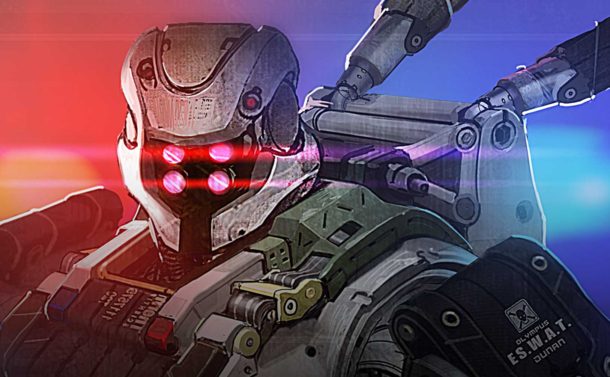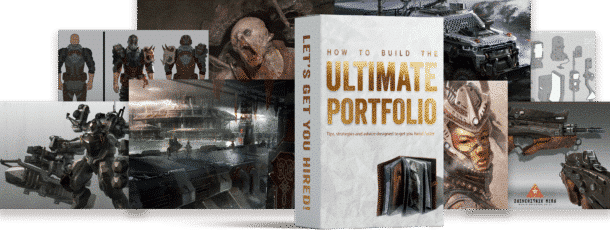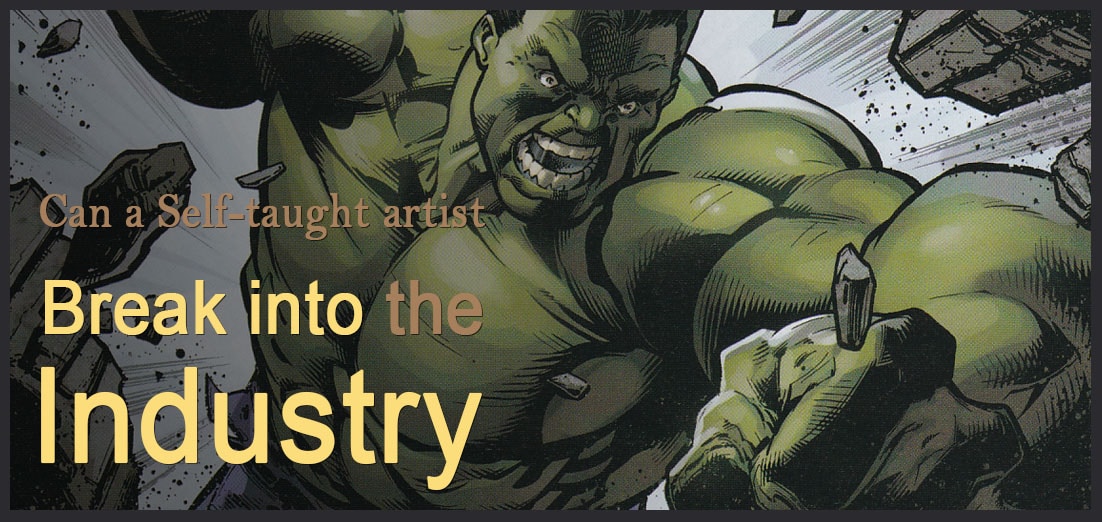
by Eliott Lilly | Apr 25, 2017 | Questions, slideshow

Eliott discusses what it takes to getting your foot in the door as a self-taught concept artist.
Q My name is Carl and I’m a senior illustration major at a loss for how to get a foot in the door. I am not sure how to start taking the next step into the field, and I have no experience networking. I would like to continue pursuing a professional education (ideally in a trade school as you said), but I don’t think I can make that happen financially right now. I’ve been exploring my other options – largely online courses from independent artists like Chris Oatley or CubeBrush. Would you say this route is viable in your personal opinion, or at the very least a good practice to use in the meantime while saving up for a more advanced education? Do you also think it’s possible to catch up with those who have been working towards this for much longer?
A The short answer is: Until you have mastered your craft and your artwork is on the same quality as professionals, you will have a hard time “getting your foot in the door.” Your competition are professionals currently working in the industry (not your peers in school). So, what do you do? I wrote an article on CGChannel.com, discussing some of this, and it might be a good read for you. Check out: 10-questions-to-ask-before-you-apply-for-your-first-art-job/
And, yes, get your education however you can and soak it all up. There are tons of free resources you can start with (see the resources page) and paid ones that will take you even further. These will hold you over for a while, but at some point you will likely need more structure and direct guidance.
At that time, it’s worth reevaluating your finances to see what’s possible. If going to a trade school is still out of the picture, then consider mentorships where you can get direct feedback on your work from working professionals.
If that is still unobtainable, then you can always join forums, and art groups on social media that specialize in feedback and critiques. That will at least get you some feedback, but always take it with a grain of salt, since you don’t know who’s offering it (Is it a professional or a student? – there’s a big difference there).
Playing “Catch up” is a dangerous game that if you aren’t careful, will lead you down a dark hole since there will always be artists better (and worse) than you. Change your thinking to: “Will my work ever be good enough to support me as a professional artists?”… The answer’s usually is: “With enough time and patience, yes.” But, the caveat here is that you need to HONESTLY determine if being a concept artist will still be worth it to you if it takes 10 years to get there. If the answer is “No”, then you should probably find another career and keep art as a hobby.
If I were you, I’d consider writing to self taught concept artists to ask their opinion on this subject. Dan Luvisi and Darek Zabrocki are two super talented artists that I can think of – do some research and find others.
Remember: as long as you are learning, (even if it’s on your own) then you are heading in the right direction. There are no guarantees in art nor is there an easy button – To get better takes time and determination. Seriously. If you prioritize being a professional artist above all else, then it might happen sooner for you. If, however life gets in the way, then it might take longer for you to get where you want to be
Best of luck
Want to help us grow our resources section? If a resource has helped you greatly please e-mail it to me or any suggestions
to: me@eliottlillyart.com. I will be keeping this list updated as I discover new entries. Thank you--
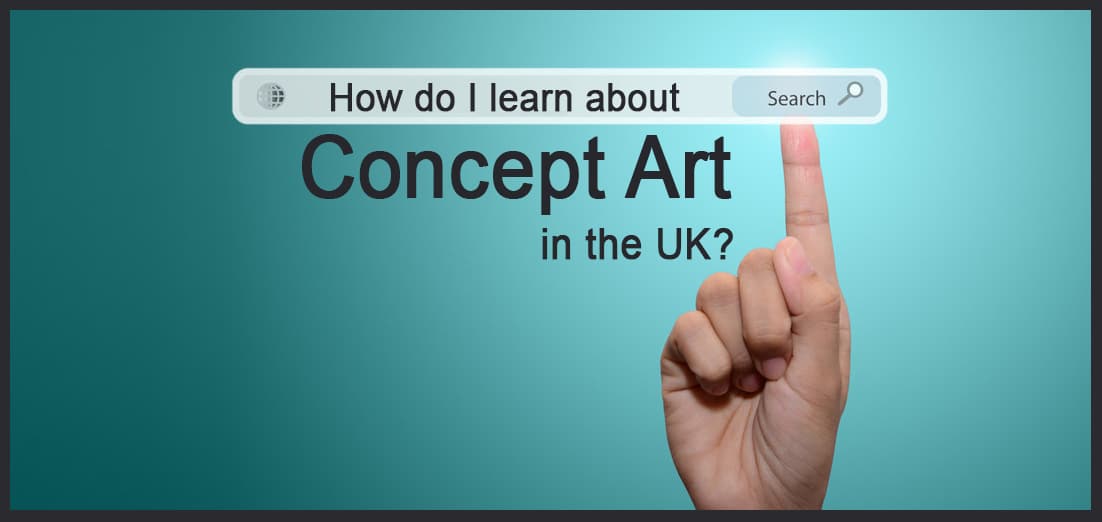
by Eliott Lilly | Apr 20, 2017 | Questions, slideshow
Eliott offers advice for concept art education in a competitive industry and how to prepare for it.
Q I am Charlie, a first year student currently studying BA Games Art and Design – Norwich University of the Arts in the UK. The program however is rather slow pace and focuses little on concept art. The UK is not known for its concept art courses, unless there are courses I’m missing. I could go abroad but going abroad would also present problems. Starting a four year degree seems almost overkill, and being 21 I need to ideally get my life along a bit faster. The big questions are: would a four year degree still be worth it now? Or do I try to find an industry related course in the UK.
A You are correct: Any advice offered would depend on where you are in your artistic development, and where you want to go with your career. So, in that regard, I would need to know more about you, and see some of your work to properly advise you (feel free to send).
In general, however I can tell you that if you have zero traditional art background, then you will likely need at least 5- 10 years of intensive art training to be “good enough” to compete as a professional artist. How did I get to that number?
- 2-4 years of training at an all art college (or program) to develop your foundation skills (nothing fancy, just the basics of perspective, anatomy, color, light, etc).
- 1 year to learn a specific skill set, (like a Photoshop, or a 3D modeling program)
- 2 – 3 years to refine, polish and strengthen your techniques while developing your artistic voice.
Once you have all of that under your belt, you will be better positioned to be competitive in this industry. If that amount of time seems too long, then there are ways to shorten it a bit, but you wills till have to put in the effort and time. You can shave a bit of time in your artistic development by:
- attending an intensive 2 year concept art program at places like FZD, Brainstrom, and other such schools. (these aren’t guaranteed to get you industry ready but will get you closer than a traditional art college since they focus on and specialize in concept art).
- learn multiple things at once (GIVE UP YOUR SOCIAL LIFE to spend every waking minute intensively focused on art)
- Continue to supplement your proper education with constant online tutorials, and training.
Unfortunately, there are no shortcuts with art – you just have to grind your way through it. If you read all of that and your gut feeling was: “Yikes, I don’t have 10 years” then, maybe keep art as a hobby, and pursue something else in the UK. If your gut reaction was: “Yikes, 10 years is a lot, but I can do it sooner!…” then I say PUSH ON. It’s really all about you as a person, your mental determent, what resources are available to you, and what you prioritize in life.
I came across another student who had similar issues as you and wrote about him on my blog. If you haven’t already, I highly suggest you read this article, as his options might help inform your decision making in the future,:
https://bigbadworldofconceptart.com/////user-questions/am-i-in-the-wrong-school/
Best of luck.
Want to help us grow our resources section? If a resource has helped you greatly please e-mail it to me or any suggestions
to: me@eliottlillyart.com. I will be keeping this list updated as I discover new entries. Thank you--

by Eliott Lilly | Apr 17, 2017 | slideshow

Q Benjamin asked a question concerning getting that first job. Can you rely primarily on a really nice portfolio and a degree, while having a sparse resume? Are internships prevalent in the field of the concept artist?
A That first job can be tricky. A sparse resume indicates a lack of experience, which sogame studios will require in order ito be an eligible candidate (they usually require 2 – 3 years minimum). So you may be asking yourself: “well, how do I get that experience if they aren’t willing to hire me?” And that’s the rub.
To answer your question: While it is possible to land those jobs without experience, your portfolio would need to be AMAZING in order for a studio to take a gamble on you. The degree is less important. With that being said, if someone has been considering opting to start a vocational course, sites such as Upskilled could hopefully help make the decision process a lot easier. With more skills added to your resume, hopefully this could boost the application and possibly get one step closer to landing a job without much experience.
I would suggest beefing up your resume; you can do this by using an online resume editor alongside taking on smaller side gigs for legitimate clients. They may not pay very well, but they will show you can work as a professional, with skills like sticking to schedules and timelines, making deliveries and revisions, and understanding the clients’ goals and visions and translating it into the illustration. You can start by making a professional cv that will show potential employers that you are able to stand out from the crowd and come across as a real pro. Making small changes to your resume can be beneficial to your chances of securing the job, but incorporating big changes could hinder it instead. In this day and age, many businesses may decide to enlist the help of somewhere like this Mississippi background check company to help them to verify the accuracy of job resumes, so any lies that you incorporate onto your job application will be noticed and could affect your employment going forward. So, make sure that you take the time to ensure that your resume is accurate. This in itself can help you to stand out from the crowd.
Personally, while still in college, I searched job boards and forums for people in need of art. I got my first job illustrating a cover of someone’s print-on-demand book (which was new technology back then), and a few other small jobs designing logos and other crap. This went on for several months, until I had enough “experience” to land a job with a bigger client making TV pitch ads (none of these were concept art – more so illustration, but it got me the professional working experience I needed). By the time I graduated and it was time to find employment at a video game studio, I already had 2 years of professional art experience. I used that point, along with my solid portfolio, to win over my first video game studio.
A To answer your other question: While I have heard about concept art internships, they are usually few and far between. Be on the lookout for them, but I wouldn’t hold your breath. Of the many concept art peers I have worked with over the years, only one had an internship first, before begin hired full time.
Want to help us grow our resources section? If a resource has helped you greatly please e-mail it to me or any suggestions
to: me@eliottlillyart.com. I will be keeping this list updated as I discover new entries. Thank you--
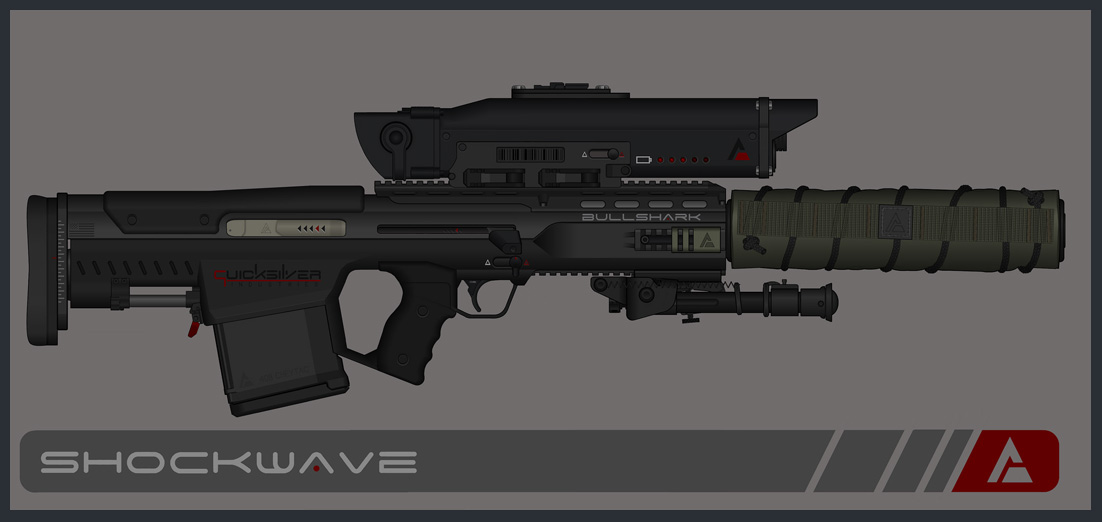
by Eliott Lilly | Jun 25, 2016 | Questions
Senior weapons concept designer Eliott Lilly answers a few important questions and explains weapon design creation for today’s video game market.
Hello Mr. Lilly.
Currently I’m merely a hobbyist firearms designer, but I’m looking into making my job of it. I recently read an article where you said to “set a specific goal for yourself”, and I didn’t need to think about it- I want to be senior weapons artist at Treyarch. The problem is, I don’t really know how to get there. All I’ve got so far is the firearms design. I know I need to learn to 3D. Build a solid portfolio. Get to know the community / industry. Practice a lot. But almost all of these are kinda vague instructions. I’m afraid I’m going to put a lot of time and effort into this and nothing will work out.
Mr. Lilly, I was wondering if you could provide some guidance for me because honestly I’ve never felt so sure and driven in my life.
Hey Wouter
As video games gain mainstream popularity and generate huge revenue profits, there are certain global trends to be aware of:
1. Working for mega-blockbuster games that generate huge revenue profits,(Like COD) means you have to be extra careful not to infringe on another company’s Intellectual property. Gone are the days when artists could just copy a real world Colt M4 by reading a review from the likes of Firearmblog Online or the likes, and implement it into the game without fear of lawsuits, let alone collage-ing real world parts in new ways to call it an “original gun”. If people can still recognize that you’re using a Magpul grip as your base design, then there is a very real chance that Magpul will have a legal claim against you and the client. As someone who’s been on the legal side of that, trust me when I tell you: it’s no fun. Any kind of legal action involving firearms are painful experiences (which is why when it comes to the physical items people will go to experts like https://gunlawsuits.org/gun-laws/wisconsin/concealed-carry/ to help them handle the situation), so keep smart as you go.
I suspect that this is a large part of the reason why COD is moving into the future warfare. Doing so relieves them from having to pay companies licensing fees. It also allows them to own all of their content outright.
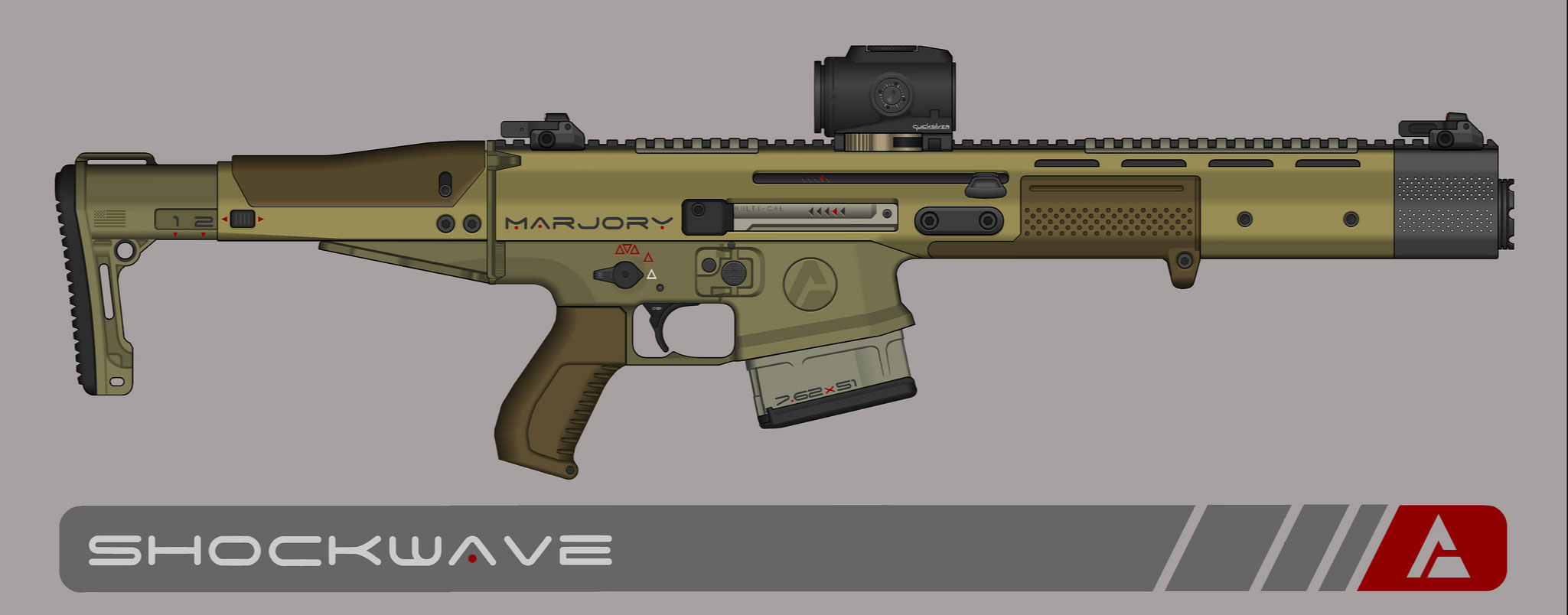
2. As a result of growing lawsuits, I have noticed the trend of videogame studios hiring “specialist” artists who are passionate about weapons and know them inside and out to do the heavy design work on weapons for the game, then having the more generalist artists do the cleanup, tweaking and any fixes needed.
Companies are looking for a designer who can make something look futuristic and sci-fi, yet still grounded in reality. Construction details, materials and textures are equally as important.
Another thing companies want to see are new weapons that they’ve never seen before. Being able to design that unique, “signature weapon” is king. This can be achieved through the way the weapon looks, is manipulated, fires, etc. Designing your own weapons, however, requires knowledge of the elements that make a firearm work. You should learn more details about what is needed to create a weapon, propellants for instants, to make sure your own weapon is realistic and doesn’t take away from the realism of the game. If you can design weapons like these, and demonstrate strong design skills in your portfolio, you will forever be employed.
3. Presentation of weapon ideas:
Side views are cool but the money shot is in the 3/4 front and back views. This angle makes the gun come to life. If you want to work at a video game studio that develops first person shooters, then the “first person view” of the gun will be incredibly important. You will need to showcase this angle in your weapons portfolio as well.
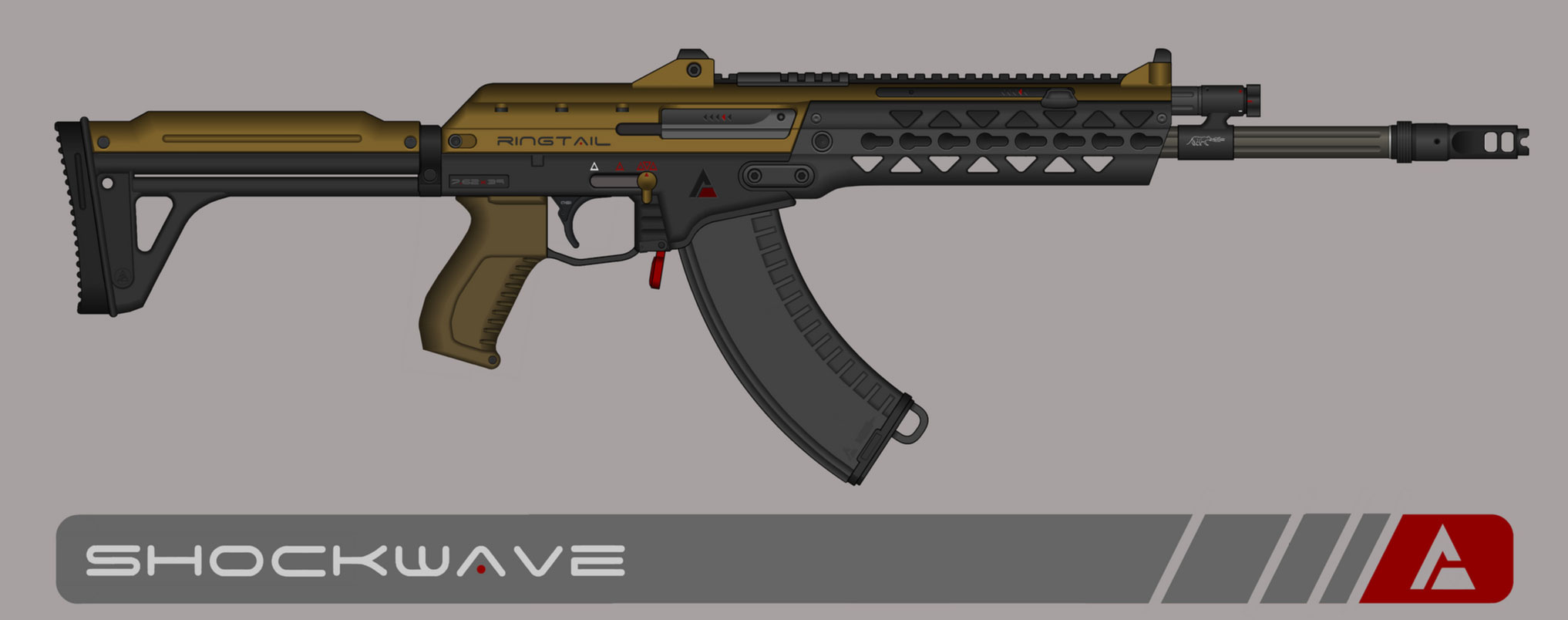
4. 3d software
Yes, there is a growing trend to do everything in 3d these days, but honestly, most of what I do is on paper and Photoshop. I only tend to use 3D if the client requires a fully rendered, super sexy marketable image- in those situates being able to model, light and capture a weapon from all angels really helps.
Unfortunately, there’s no industry standard software, so chose whatever is comfortable for you. The most common ones are 3ds Max, Maya, Modo. But I’ve even heard of artists using Fusion and Sketchup for gun designs
5.Transitioning from hobbyist to pro:
Think bigger than Treyarch. As long as video games have violence, there will be a need for weapons and weapon artists. Think about other studios that make games that you like and design weapons for them as well- that way you will have a portfolio with wide variety of weapons, and a depth showcasing your intricate knowledge of weapon design. This makes you marketable to any studio.
To get an example of what your portfolio should look like, you can of course check out my website www.eliottlillyart.com to see the types of weapon designs i have on there, but I would also lookup a few other “gun guys” and see how they do, what they do.
I hope this info helps.
-Eliott

by Eliott Lilly | May 2, 2016 | Questions
Question submitted by Jonathan E. Concept art by Hector Ruiz

Hey eliott, I have several questions for you:
The first: How easy is it to transfer positions within a company? For instance, if I worked in UI, how “easy” is it to make a jump to concept art if I started feeling a hankering? I’ve been considering UI, as it turned out a lot of the projects I worked on required it, so I have a fairly complete porfolio built up out of the gate. I’m also hesitant about wearing out my artistic ambitions due to the stresses of the AAA world, so coming into a company from a different door and approaching concept art from within seems somewhat feasible. Maybe I’m crazy : )
That depends on a lot of factors such as timing, how “good” you are, who you know, etc. If you can prove to the higher ups that you can do more than you are currently doing, then there may be a chance for you to shift your position at the studio, but you will likely have to wait until a position opens. There’s no guarantees here, but at least you know the people who do the hiring.
If you wanted to jump from Ui to concept art, then you will need to show a solid portfolio. Keep in mind though, that those are two very different skill sets and its very difficult to develop a solid body of work for each talent. If you are worried about bunign out, maybe you should consider working at a smaller game studio where they will require you to do a bit of everything (not just UI or Concept art, but both…and more)
The second question: Do you feel that you were tasked so heavily with creating weapons for Treyarch because their games revolved around them? To put it another way, would you perhaps not be quite so specialized at a company like Bioware, where you see a whole variety of concepts are needed to build their fantasy / scifi worlds?
I was tasked with designing weapons for Treyacrh because I set my portfolio up to prove that I could. Since I am a freelance artists, I thought it would be better to be “known” as THE weapons guy rather than just another artist. I made a conscious effort to display weapons in my portfolio, and I was hired to do just that. I can, of course. draw other things, but my portfolio was specifically designed to target companies that make first person shooter video games. If I was an in-house artist, then I would set up my portfolio with a bit more of a general approach, showcasing other things besides weapons.
The third question: Is there anyone else that might weigh in on what other companies are like? (Perhaps there might be some other angles worth hearing about).
It’s always a great idea to seek other peoples perspective and opinions. I can’t recommend anyone off the top of my head, but I am sure you can reach out to your favorite artists and they will respond. Might take them a while though, so be patient.
Hope that helps.
-Eliott








